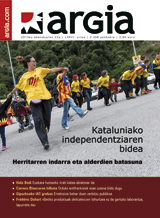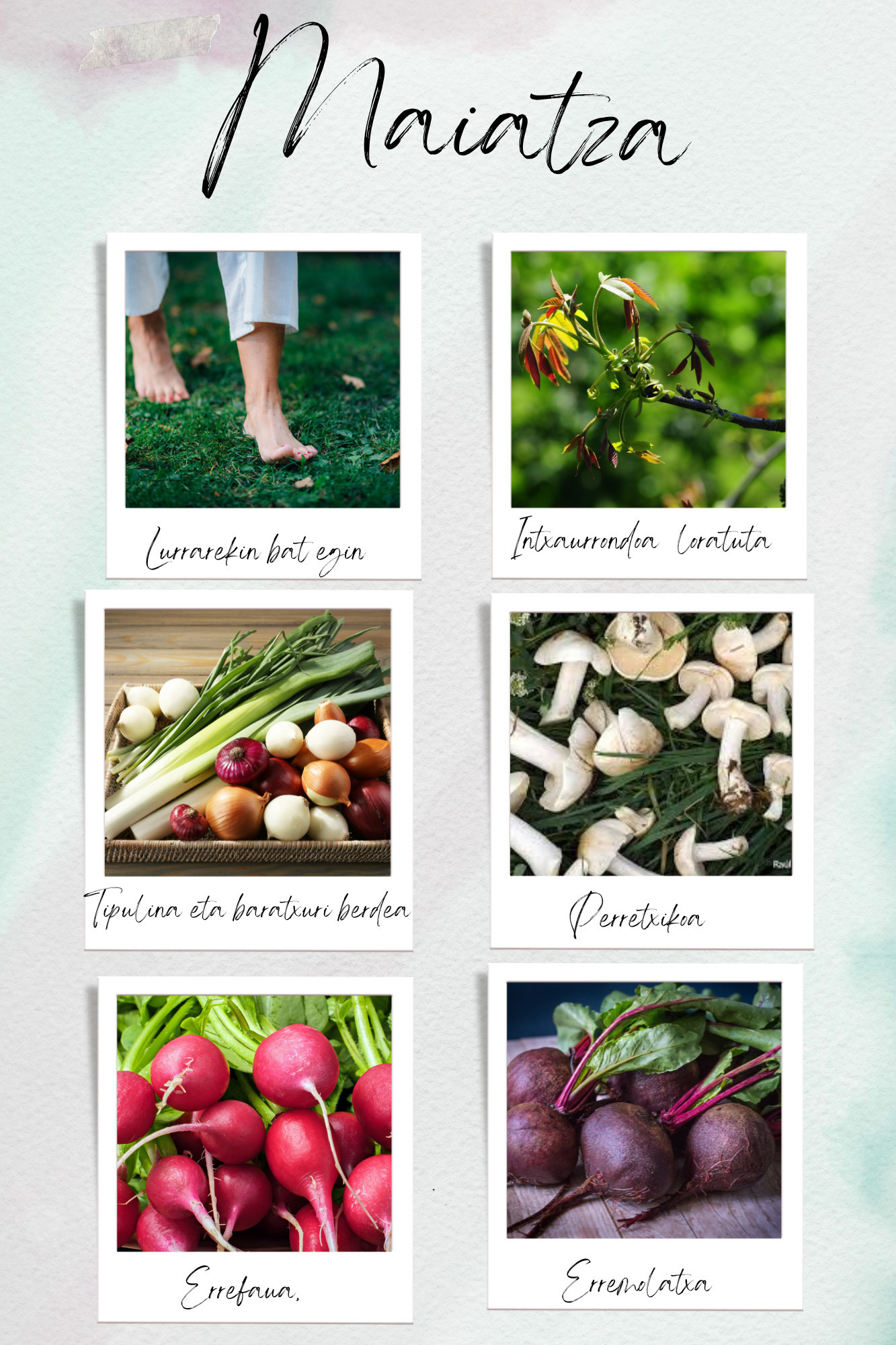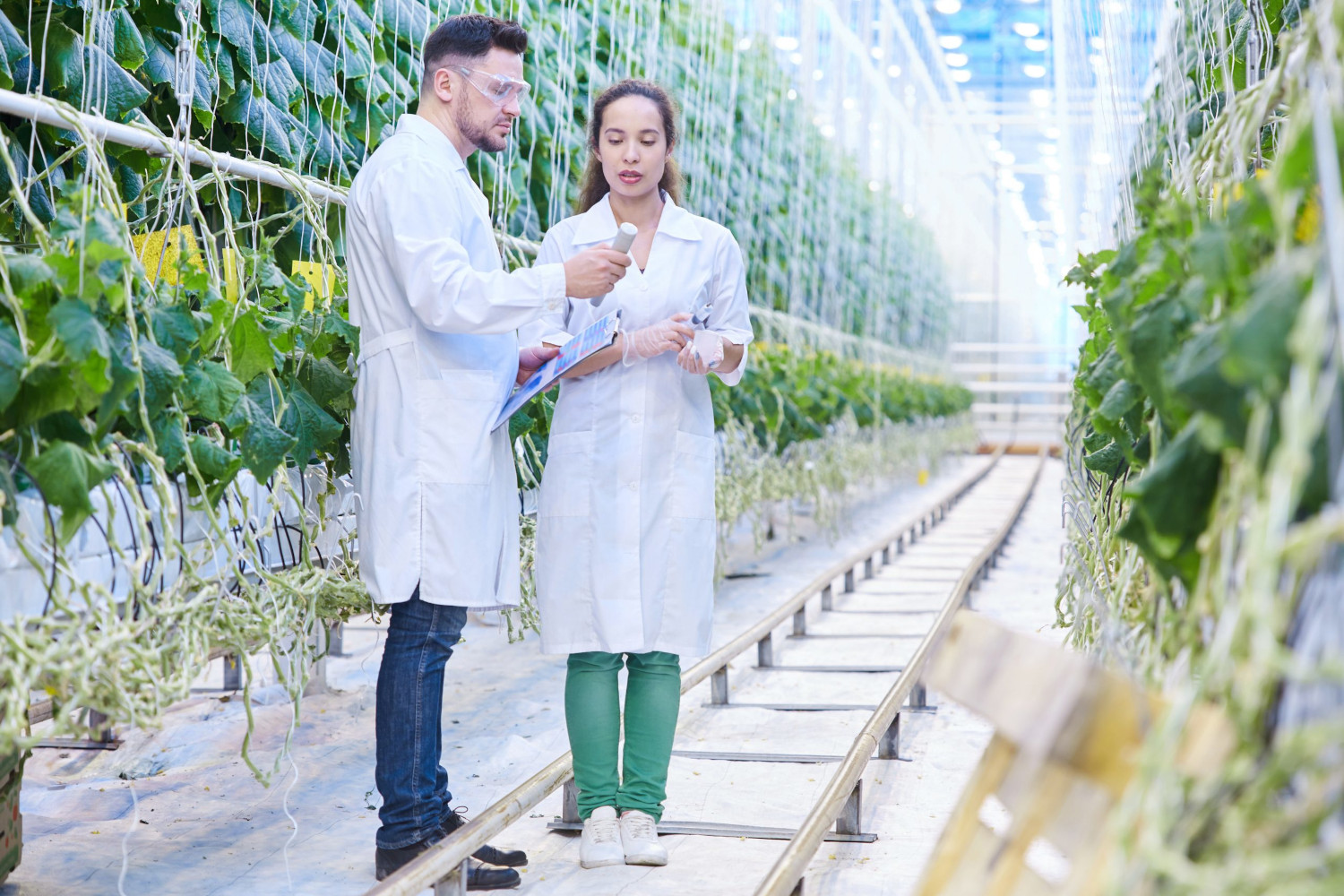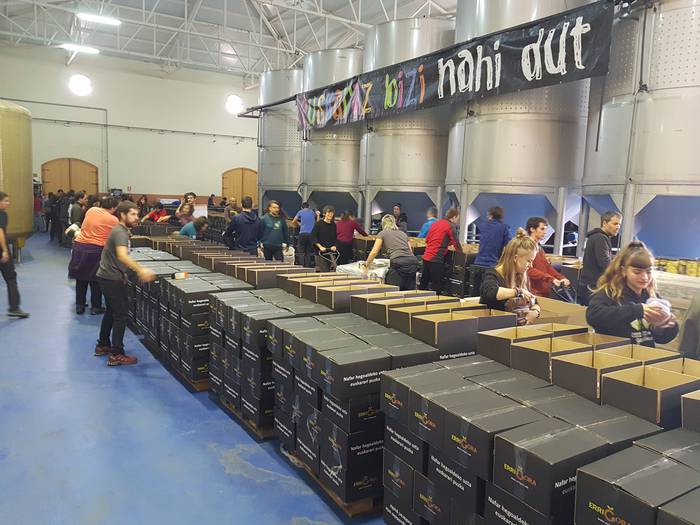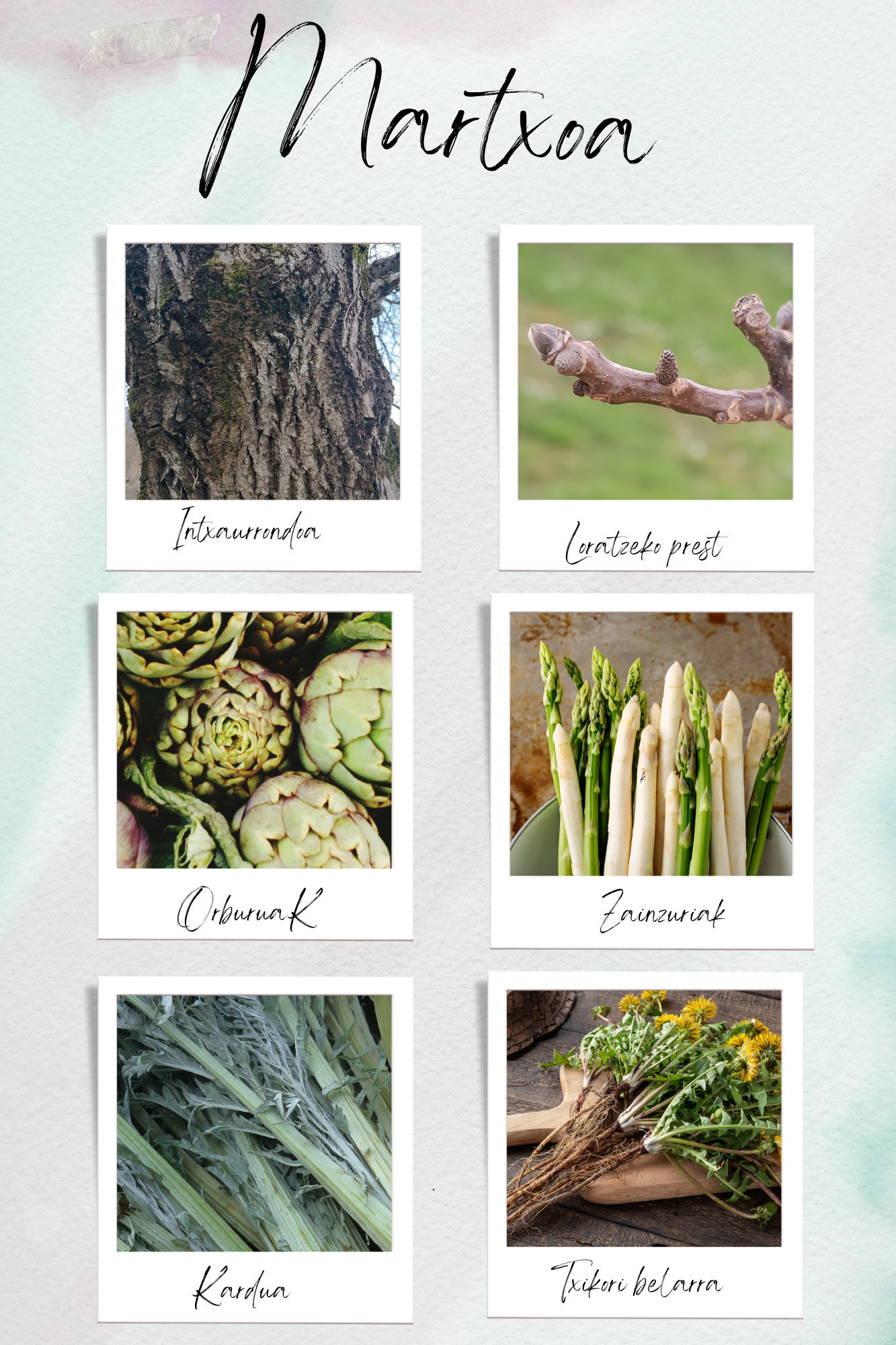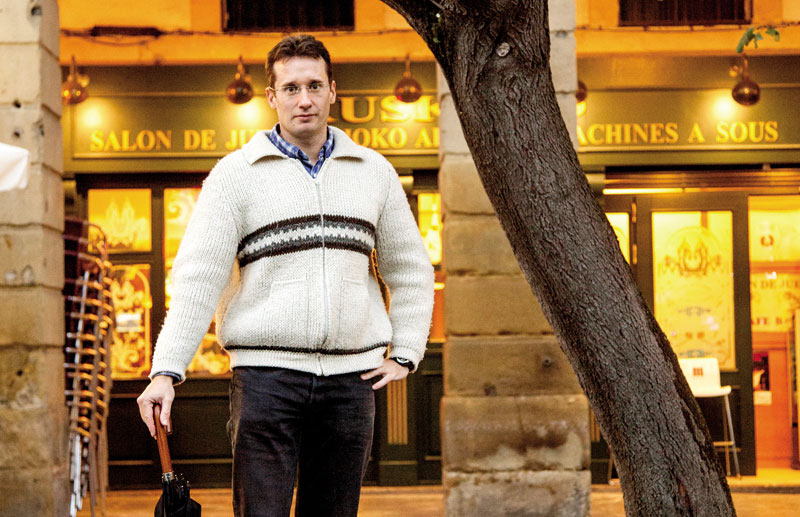
How is land taken in food anthropology?
I come from a humble world, from a simple environment, and at the university of Bordeaux my link with the earth was hindered by a different way of life. I lived on the street that the beggars were inspecting in the garbage cans, and with this I stripped of the casings and examined the evils of consumption. I met with authors who started working on Cultural Material in Baiona and seriously analyzed nutrition and anthropology from the perspective of biodiversity, bringing to the surface my relationship with nature. Jacques Brel sings that a child dreams of 8 years old and lives from behind them. I can be that kid, because what I do today is based on the conversations I had as a child with my grandmother. Anthropology, by definition, is a human study, but that doesn't mean that I have to spend three years with Aboriginal people in the jungle. Your research is a personal adventure, a desire to answer the questions that society places, a passion. Those who work on food never disconnect, are forced to eat every day and become the object of research and part of the research. When I travel around the world like natives. It's a way of empathizing with the natives and grasping my limits, because most of the limits on food are not physical, but cultural. Why do they sell the rat in a village in Chiapas and give us a notch at the price of the chicken? Why don't we eat human flesh? Why does Itsasu's grandfather, who is not used to coming to the South without resorting to extreme examples, not trust the black Jewish and yes to the white pea? We form very different civilizations and communities. That's what the fascination of anthropology is.
Do we usually ask good questions when we eat? Are we aware of the cultural and identity aspect of eating?
There is too much talk about calories, prices and health, and too little talk about identity and cultural aspects. This is the main error of the current discourse on food. For example, Euskal Herria is known to be an innovative territory in the world. They talk a lot about corporativism, about the agricultural cooperatives that were set up in Iparralde for local development, by Lur Berriz ... Lur Berri’s financial success is obvious, but how do his cooperating farmers feel? At first, they would have been cooperating, but now are they not exploited until the last drop of sweat? Today, Lur Berri is a multinational that, in the name of financial success, has condemned the pretense of initial social development. That is why the cultural dimension must be returned to the people. That's the current food challenge. For the rest, they tell us about calories, pleasures and health, but as the wine industry wears everything, it is very convenient to drink every meal a glass of wine. Meanwhile, an Algerian landlord was on the streets of Bordeaux with the couscous and claimed with emotion that his origin was his story. The cultural identity dimension is at our center, which is why it is indispensable.
Were we not all the inhabitants of the world?
Returning this cultural dimension to our amatxas who have spent their whole lives in the kitchen without any gratitude is accepting that they have received and transmitted the keys of our civilization. But no, the world's population prefers to live culture as a heritage rather than drown in the problems of the cultural dimension of food. What happens is that we live in a very staggered society, where one people eat what they want and the other one can. If you eat what you can and you also put yourself with these kinds of questions, you get crazy! But if you immerse yourself in the whirlwind, you put it all in doubt, from the genuine nature of the products to food marketing. For example, in the Bretxa de Donostia every morning vegetables are sold at the price of gold. They call that market, but it's an organized robbery! They're going to tell me that they're small producers, but making delicatessen products are not a nearby crop, it's a steal. So when you put the question on the string, you become a problematic consumer. It is not enough to want to consume Bio, I want to know what age you have when I buy a chicken, what kinds are exactly when I gather apples... These are the basic questions, and these are the ones that lead us to give the weight back to farmers and small producers. They work honestly and are eager to answer the questions. Communication and advertising are incapable of responding.
Advertising says we are what we eat.
Go a refrain stolen by the system and dragged like a slab! However, it is true. For example, in the Basque Country we have very identity oak trees. Imagine, the stem was our identity symbol, it almost disappeared, and it has resurfaced thanks to identity parties. When do you eat the stem here? On St. Thomas' Day, our ancestors turn around in the coffins when they hear that 4 euros are charged. The same as with cider, it's a very identity beverage. What is the only day you drink cider in the bottles? Saint Thomas. But beware, kalimotxo is also a very identity drink, and it's made of Coca-Colaz! That's why identity is an insurmountable knot, and it's hard for us to prove that when we talk about food, we're reflecting society. But eating is one of the political and symbolic actions that we have in our hands, a way of expressing and confirming our identity. Why, if not, is the hunger strike such a significant protest weapon? What about pork in French school eaters? The Muslims are agitated, the laity defends the presence of the pig and, in the meantime, every Friday fish is eaten! For a Muslim to eat pork is like for us to eat human flesh, a taboo that goes beyond scruples. So I say, food is the mirror of identity.
Turning around the slab that we crawl, do we eat who we are?
We can only eat whatever we are where we are: even if the food is from antipods, they have also brought it to us. Hence the concept of food landscape. When will we recognize that we are surrounded by food like we are surrounded by landscape? In Donostia-San Sebastian there is no savage dwelling and no one tries to bring the Sahara desert to Easo Street, right? Why do we do it with food? The point is that food has a spatial dimension, because virtually everything can be done except breathing, sleeping and eating. So, if you're eating anything you want, it's very possible to eat whatever you are. What happens? Precursor, fashion and modest, that the people who sit will have dinner at Mugaritz, because it is well seen and because paying 200-300 euros for food gives it a social status. In the same way, other people who want to affirm the alternative come quinoa, and quinoa is very good in itself, but the Peruvian who eats quinoa is nothing alternative. On the other hand, its deepest identity is the one that fights through food, political food, like the one that organizes popular vegetarian meals to integrate them all or the one that has chosen to live linked to local products. Why do you think that all the Basque students who were scattered in France had a bottle of pachan in the closet? Why did the captains of the boats of Ipar Euskal Herria go to Quebec in their suitcases have confused geese? Because they wanted to take him to mouth. When we eat what we want, we eat what we are. When we are forced to eat what we can, the issue is more arduous, more painful. That's why I get out of my mind the well-seen gastronomes that say that the ham leaves that they sell in the supermarket are crap. They're full of their mouths saying we're what we eat, and the tusks glow with the news that the cheap ham from the supermarket is crap, but don't you realize that, speaking like this, it's no choice but to claim that it's crap that eats that ham?
These experts claim that, in addition to eating, food is being distorted.
The ways of eating and the ways of eating are constantly changing. For example, in Euskal Herria, we've known the time when women cooked, served and ate standing while men ate sitting. Then we sit down to eat, but in all the houses, the amatxi sits on the corner of the table and rises at every moment. On the other hand, the system that we consider good is a very classical food structure, but what's better if we eat in a family where the father spends the food screaming at the lady and beating the kids or just watching television? We're at the doorstep of the explosion of the classic system, and exceptions like eating just until recently are becoming very normal. For example, rest to eat in the workplace. Before, artisans, officers or labourers ate at home, the pace of work depended on it, we had time to eat. Now we work outside the house, under the pressure of the elderly, in the imposed time, which entails new types of food and spaces. Until 15 years ago, in Iparralde, the snack was only sold in very rare places for people who took the train or for students who did not want to eat in the canteen of the lyceum. Today, most bakeries are enriching themselves with it. Another example, the first big factories had a dining room, and the worst thing was that each one heated their food and had a physical space to eat all together. Now you see people park on the coast and eat their snack in the car. Is this not an important fact in the analysis of workers' struggles?
Are we again late?
Let everyone draw their conclusions. The agri-food industry has expanded and multiplied the supply by the outbreak of pre-cooked meals and by the fascination of new ways of eating in this release of food. In the same sense, what's going on with this instant fashion of the pintxo pote? What about eating sushi? The first Sushi restaurant in Iparralde was opened in 1994 and today they are located in front of the Baiona City Hall, which has become the symbol of a vulnerable business. It is undeniable that we are in a time of development or change of model, but I do not believe that the move should be compared to the classical form. From an anthropological point of view, developments are neither good nor bad, but societies evolve. Talking about cooking with friends 20 years ago was retrograde and olorous to naphthalene, and now it turns on TV and there's no more!
Doesn't fashion bring what it brings?
Surely, but now the kitchen and the cuisine are about to die. Television is not about promoting it, but about taking advantage of it. So I think that on the liver of this new fascination with cooking, there's a desire to go back to socialization. You don't usually work that hard for yourself. Those who put the apron and put into practice what they learned in the course for their friends, want to appear well in front of others, is their way of socialization. We're going back to the art of receiving people at home, swimming between two contradictory waters. It is possible that at noon the person who has eaten the standing burger at the Burger King will spend the afternoon in the kitchen preparing delights to surprise their guests. That's why we're at a really interesting time.
Can the action of eating be understood as an isolated action?
To the extent that it is essential, eating cannot be understood outside society, it is connected with everything. There's no mirror like a plate looking at people. When you analyze it from what you eat to society, you have everything: a chain of production, a chain of socialization, a historical religious symbolic chain ... When we talk about food, we mean the whole chain, not just three-star restaurants. So I say immersing myself in food anthropology leads me to some conversations that I had with my grandmother from a young age. For me, working on food can be doing a study on producers, but also a way to affirm my weakness. Development is a derelict truck that is each day closer to the wall, and although the truck stop is very difficult, we are still in time to take a turn and bring the river to its destination. But we have to do that now. In ten years' time it will be late. If we do not accompany and direct the young people who are now about to join the biological culture, in ten years’ time it will be the workers of the tanneries. The problem of land, which we forget in the shadow of the real estate crisis, must now be resolved. When everything is asphalt and brick, in vain we will claim that there are young people who want to join organic farming. This is the time to think and carry out general strategies, and that is where I place the meaning and mission of an organization such as the Basque Culinary Center. Now it is my turn to fulfill the dreams I made when I was 8 years old.
Frédéric Duhart Baionan sortu zen, 1976ko otsailaren 3an. Irakasle eta ikertzailea Basque Culinary Center-en, 2009tik hona CORPUS nazioarteko taldeko koordinatzailea eta UAES erakundeko elikaduraren antropologiako batzordeko arduraduna da. Horretaz gain, artikulu eta liburu anitzen egilea da, hala nola, Du monde à l'assiette edo Anthropologie historique du corps.
Jende batek argumentuekin konbentzitzen zaitu, beste batzuek irribarrearekin txunditzen zaituzte, eta Duharten pasioak harrapatu nau ni. Elkarrizketa erdian, ostatuko gainontzeko bezeroei erreparatu eta banan-banan erretratatu dizkit, basoan edo platerean zeukatenetik abiatuta. Eskerrak ez nintzen ez gose, ez egarri.
Andrea Velasko dietista eta nutrizionistak elikaduraren bidez menopausiak eragindako aldaketak kudeatzeko zenbait gako eman ditu.
Florentzia, 1886. Carlo Collodi Le avventure de Pinocchio eleberri ezagunaren egileak zera idatzi zuen pizzari buruz: “Labean txigortutako ogi orea, gainean eskura dagoen edozer gauzaz egindako saltsa duena”. Pizza hark “zikinkeria konplexu tankera” zuela... [+]
Udaberrian orain dela egun gutxi sartu gara eta intxaurrondoa dut maisu. Lasai sentitzen dut, konfiantzaz, bere prozesuan, ziklo berria hasten. Plan eta ohitura berriak hartu ditut apirilean, sasoitu naiz, bizitzan proiektu berriei heltzeko konfiantzaz, indarrez, sormen eta... [+]
“Hondakinik ez platerean!”. Hori zen kontsigna gure txikitako otorduetan. Janariak zeozer sakratu bazukeen, batez ere ogiak; lurrera erori eta, jasotakoan, musua eman behar zitzaion. Harik eta adin zozoan mamia baztertzeko moda etorri zen arte, lodiarazten zuelakoan... [+]
Bizkaigane elkarteak elikadura burujabetzan oinarritutako proiektua du Errigoitin (Bizkaia), 1983tik. Instalazioak dauden lur eremutik aterarazi nahi du lur jabeak elkartea. EHNE Bizkaia sindikatuak adierazi duenez, instalazioek lege eta administrazio eskakizun guztiak betetzen... [+]
Martxoaren 10etik 26ra izango da udaberriko kanpaina. 'Beste modura, denona de onura' lelopean arituko dira gertuko ekoizpena, banaketa eta kontsumoa babestu eta sustatzeko, ager zonaldean euskara hauspotzen duten bitartean. Apirila amaieratik aurrera jasoko dira... [+]
Euskal Herriko bi muturretatik datoz Itziar (Bilbo, 1982) eta Ekaitz (Erriberri, 2002), sortzen ari den Burujabetzaren Aldeko Mugimenduaren berri ematera. Euskal Herrian diren burujabetza prozesu ugariak arloz arlo bultzatu eta indartu nahi ditu BAMek. Lan horretan hasteko,... [+]
Ur kontaminatua ur mineral eta ur natural gisa saltzen aritu dira urte luzeetan Nestlé eta Sources Alma multinazional frantsesak. Legez kanpoko filtrazioak, iturburuko ura txorrotakoarekin nahasi izana... kontsumitzaileen osagarria bigarren mailan jarri eta bere interes... [+]
Emakume bakoitzaren errelatotik abiatuta, lurrari eta elikadurari buruzko jakituria kolektibizatu eta sukaldeko iruditegia irauli nahi ditu Ziminttere proiektuak, mahai baten bueltan, sukaldean bertan eta elikagaiak eskutan darabiltzaten bitartean.
Zuhaitza esnatzear dago, kimuak ageri dira adarretan. Gutxi falta da loraldirako, laster aro berria hasiko du, indarberrituta.









